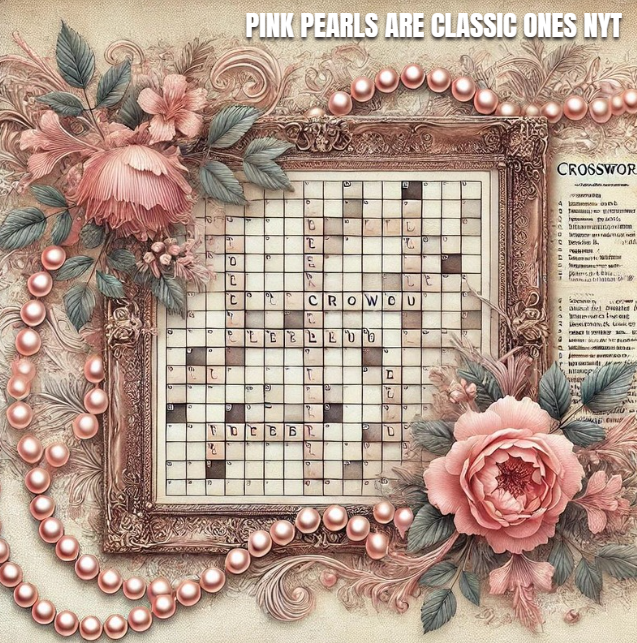Mizukando: Unraveling the Enigma Behind the Term
Introduction to Mizukando
In an increasingly connected world, new terms and concepts frequently emerge, capturing the curiosity and imagination of people across the globe. One such term that has sparked intrigue is “Mizukando.” Though its origins and exact meaning are shrouded in mystery, the term has managed to carve out a unique space in various discussions, both online and offline.
This article aims to delve deeply into the enigma of Mizukando, exploring its potential meanings, cultural significance, and the reasons behind its growing popularity. Our exploration will go beyond the existing information, providing original interpretations, analyses, and insights that make this piece a definitive resource on the subject for audiences in the USA.
The Origins of Mizukando
Etymological Analysis
To understand “Mizukando,” one must first consider its linguistic roots. The term appears to be of Japanese origin, with “mizu” meaning “water” in Japanese. However, the suffix “kando” is less straightforward. In Japanese, “kando” can refer to emotions or feelings, especially those that are deeply moving or inspirational. Therefore, “Mizukando” might be interpreted as “the emotion of water” or “water-inspired emotions.” This initial etymological analysis sets the stage for a broader exploration of the term’s significance.
Historical and Cultural Context
Japan has a rich cultural history where water plays a significant role, symbolizing purity, life, and change. From Shinto rituals involving water purification to the aesthetic beauty of Japanese gardens with their carefully designed water features, water is deeply embedded in the Japanese cultural psyche. If Mizukando is indeed a Japanese term, it might be connected to these cultural practices, potentially representing a deeper philosophical or spiritual concept.
The Mystery of Mizukando
Despite the plausible linguistic breakdown, the precise origins of Mizukando remain elusive. Unlike established Japanese terms, Mizukando doesn’t seem to appear in traditional texts or widely recognized cultural references. This ambiguity has only added to the term’s allure, leaving room for multiple interpretations and inviting discussions that range from the philosophical to the speculative.
Interpretations and Theories Surrounding Mizukando
Mizukando as a Metaphor
One theory suggests that Mizukando could be a metaphorical term, representing the fluidity of human emotions. Just as water can be calm or turbulent, emotions are also subject to change. Mizukando might symbolize the state of being in tune with one’s emotions, navigating through life’s ups and downs with the grace and adaptability of water.
Mizukando in Art and Literature
Art and literature often explore complex emotions and abstract concepts through symbolism. Mizukando could be an artistic or literary construct, representing a particular emotional state or existential condition. Some have speculated that Mizukando might appear in modern Japanese literature, art installations, or even in the context of anime and manga, where abstract concepts are frequently explored.
Mizukando as a Philosophical Concept
Given its potential connection to water and emotions, Mizukando could also be viewed as a philosophical concept, perhaps akin to the Taoist idea of “wu wei,” which emphasizes effortless action and living in harmony with the natural flow of life. Mizukando might similarly encourage individuals to embrace the fluid nature of existence, finding peace in the acceptance of change and impermanence.
Mizukando in Modern Culture
In recent years, Mizukando has surfaced in online discussions, social media platforms, and niche communities. While its precise meaning remains a topic of debate, the term has captured the imagination of many, leading to a variety of interpretations. Some see it as a new-age spiritual concept, while others view it as a creative expression of contemporary life’s challenges.
The Impact of Mizukando on Global Conversations
Mizukando and the Digital Age
The digital age has enabled the rapid dissemination of ideas and concepts across the globe. Mizukando, despite its mysterious origins, has found a place in online communities where people are eager to explore new and thought-provoking ideas. The term’s ambiguity has allowed it to serve as a blank canvas onto which different cultures and individuals can project their interpretations.
Mizukando in the Context of Mental Health
In the context of mental health, Mizukando could be interpreted as a way of understanding and managing emotions. Just as water can cleanse and purify, engaging with the concept of Mizukando might offer a framework for emotional clarity and healing. This perspective aligns with the growing interest in mindfulness and emotional intelligence, particularly in the USA, where mental health awareness is on the rise.
The Universal Appeal of Mizukando
One reason for Mizukando’s appeal is its universality. Water, as a symbol, transcends cultural boundaries, making Mizukando a concept that can resonate with people from different backgrounds. Whether viewed as a metaphor, a philosophical idea, or an emotional state, Mizukando taps into a fundamental aspect of the human experience—the need to understand and navigate our emotions.
Case Studies: How Mizukando is Being Used Today
Mizukando in Creative Industries
Creative professionals, from designers to writers, have begun experimenting with the concept of Mizukando in their work. For instance, graphic designers might use fluid, water-like visuals to evoke the idea of Mizukando in branding or advertising campaigns. Writers could incorporate the term into their narratives to explore characters’ emotional journeys.
Mizukando in Social Media
Social media platforms have seen a growing number of posts and discussions centered around Mizukando. Hashtags like #Mizukando have appeared on platforms like Instagram and Twitter, often accompanied by images of serene landscapes, flowing water, or introspective quotes. This digital footprint highlights Mizukando’s relevance in modern culture as a symbol of emotional depth and tranquility.
Mizukando in Wellness and Mindfulness Practices
The wellness industry, particularly within the USA, has also taken an interest in Mizukando. Some wellness practitioners incorporate the concept into mindfulness exercises, encouraging participants to reflect on their emotions as if they were water—ever-changing yet constant in its presence. This approach resonates with individuals seeking balance and emotional well-being in a fast-paced world.
The Future of Mizukando: What Lies Ahead?
Potential for Cultural Integration
As the concept of Mizukando continues to gain traction, there is potential for it to become more deeply integrated into cultural practices, particularly in the USA. It might inspire new forms of artistic expression, wellness practices, or even educational programs focused on emotional intelligence and mindfulness.
Mizukando in Popular Media
Given its growing popularity, Mizukando might soon make its way into mainstream media. It could be featured in movies, television shows, or music, where abstract concepts are often explored. The entertainment industry could play a key role in bringing Mizukando to a wider audience, further solidifying its place in global culture.
Mizukando and Global Conversations on Emotion
Mizukando has the potential to influence global conversations about emotion, mental health, and the human experience. As societies continue to grapple with the complexities of modern life, Mizukando might offer a new lens through which to view and understand our emotional landscapes.
FAQs about Mizukando
What is Mizukando?
Mizukando is a term of uncertain origin, possibly rooted in Japanese, that may symbolize the fluidity of emotions or a state of emotional clarity. While its exact meaning is unclear, it has gained popularity in various online and offline discussions.
Is Mizukando a Japanese word?
Mizukando appears to be a combination of Japanese words, with “mizu” meaning water and “kando” referring to emotions or feelings. However, it is not a widely recognized term in traditional Japanese culture, and its usage seems to be more contemporary and abstract.
How is Mizukando used in modern culture?
Mizukando is used in various contexts, including art, literature, social media, and wellness practices. It is often associated with concepts of emotional fluidity, mindfulness, and the acceptance of change.
Can Mizukando be applied to mental health practices?
Yes, Mizukando can be interpreted as a concept that supports emotional clarity and healing. It aligns with mindfulness practices that encourage individuals to navigate their emotions with the grace and adaptability of water.
Will Mizukando become more popular in the future?
Given its growing presence in online communities and creative industries, Mizukando has the potential to become more popular and integrated into global cultural practices. Its universal appeal makes it a concept that could resonate with a wide audience.
Conclusion
Mizukando is more than just a mysterious term; it is a concept that invites exploration and reflection. Whether it is seen as a metaphor for emotions, a philosophical idea, or a new-age cultural phenomenon, Mizukando captures the imagination of those who encounter it. As we move forward, the term’s significance is likely to evolve, influencing various aspects of culture, wellness, and emotional intelligence.
This article has aimed to provide a comprehensive and insightful exploration of Mizukando, offering unique interpretations and analyses that go beyond what is currently available. For audiences in the USA and beyond, Mizukando represents a fascinating intersection of language, culture, and the human experience.






